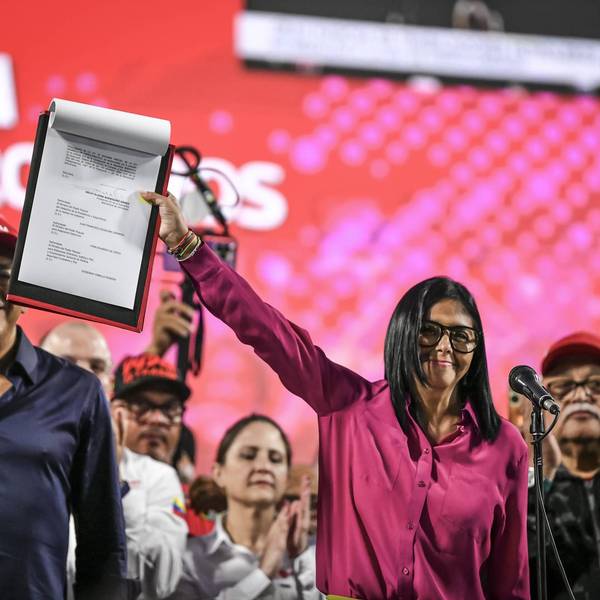Ending his first week in office by quickly putting into action the far-right agenda he promoted during his campaign, Brazilian President Jair Bolsonaro on Thursday unveiled economic proposals that critics says will worsen inequality across Brazil, putting corporate profits above the well-being of middle- and lower-class families.
Privatization of airports and seaports, tax cuts for the rich, pension cuts, and a minimum wage set lower than Bolsonaro's predecessor had planned were among the economic reforms the new president has in store for the country, as it moves toward what the new right-wing government calls a "minimal state."
Finance Minister Paulo Guedes indicated that the administration has plans to privatize Eletrobras, the government-run power firm, while Bolsonaro took to Twitter on Wednesday to announce his plan to privatize 12 of the country's airports and four seaports, claiming Brazil is burdened by "hundreds of bureaucratic governing bodies" and that the move will make available $1.85 billion in private investments.
The president eventually plans to privatize 44 airports, according to the Center for Aviation, a move that could end operations for Infraero, the country's national aviation authority.
Guedes also expressed the need for "tax simplification and reduction"--a sign that the administration will worsen the already-regressive tax code which has slashed taxes for the rich while leaving low-income families paying more each year, proportionally, than rich households.
At TeleSUREnglish, Ignacio Limas reported that there is speculation in Brazil "that the restructuring of the pension system may take the shape of the Chilean retirement system," which is heralded by conservatives in the U.S. but has been blamed for helping to usher in some of the worst wealth inequality in the developed world.
Bolsonaro has also unveiled plans to raise the minimum wage to a rate lower than that which was recommended by Michel Temer's outgoing government, bringing it to about $260 per month--eight dollars less than previously planned.
The difference "may seem insignificant," said Limas, "but is equivalent to a bag of beans or lentils or rice or corn for families with less financial resources--something that would have a large impact on the overall budgets of families."
The privatization plans and reductions in social spending were condemned by the Workers', Communist, and Socialism and Liberty Parties in a joint statement on Thursday, according to TeleSUREnglish.
The parties proposed "that there must not be just opposition to proposals, but they must form an opposition that is critical actively of Jair Bolsonaro as he wages his social and economic attacks" on Brazilians.




